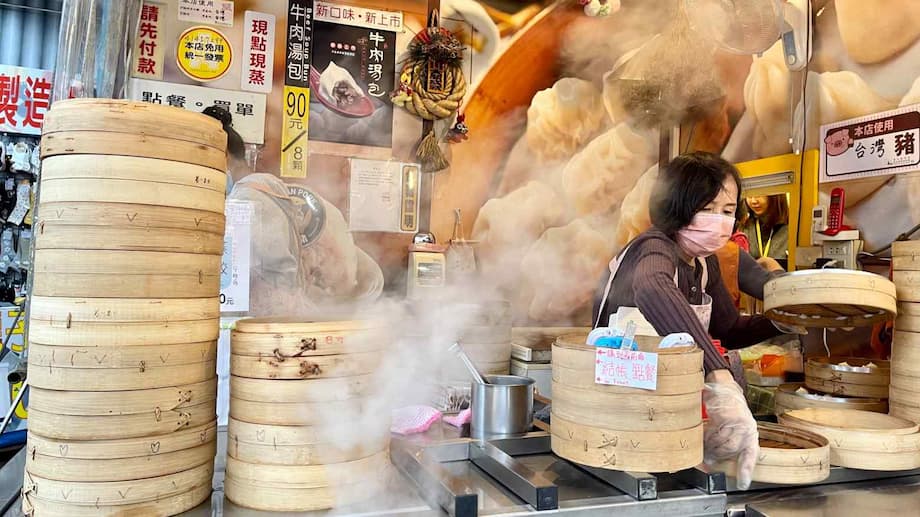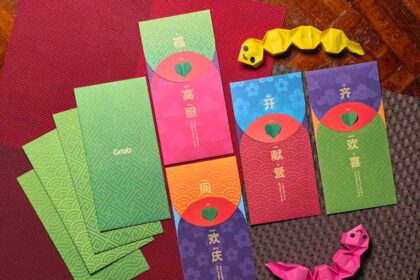Welcome to Taipei: Where Food, Markets, and Culture Collide
Taipei, the vibrant capital of Taiwan, is a city where ancient traditions meet modern innovation, and where every street corner offers a new sensory adventure. Renowned for its friendly people, dynamic night markets, world-class restaurants, and a unique blend of natural and urban attractions, Taipei has become a must-visit destination for travelers seeking both cultural depth and culinary delight. Whether you’re a food lover, history buff, or nature enthusiast, Taipei’s rich tapestry of experiences promises something unforgettable for everyone.
- Welcome to Taipei: Where Food, Markets, and Culture Collide
- Why Taipei is a Food Lover’s Paradise
- Night Markets: The Beating Heart of Taipei’s Food Scene
- Beyond the Markets: Taipei’s Diverse Culinary Landscape
- Must-Try Foods in Taipei: A Culinary Checklist
- Markets, Temples, and Neighborhoods: Exploring Taipei’s Cultural Fabric
- Practical Tips for Travelers
- Day Trips and Underrated Destinations
- Food Tours: A Gateway to Culture
- Modern Taipei: A City of Innovation and Inclusivity
- In Summary
Why Taipei is a Food Lover’s Paradise
At the heart of Taipei’s allure is its extraordinary food culture. The city’s culinary scene is a reflection of Taiwan’s complex history, shaped by indigenous traditions, waves of Chinese migration, Japanese colonial influence, and a spirit of innovation that continues to evolve today. From bustling night markets to Michelin-starred restaurants, Taipei offers an endless array of flavors and textures that tell the story of its people and their heritage.
Signature dishes such as beef noodle soup, lu rou fan (braised pork rice), gua bao (pork belly buns), xiao long bao (soup dumplings), and the infamous stinky tofu are just the beginning. The city’s food culture is not only about what’s on the plate, but also about how and where people eat—whether it’s grabbing a quick snack at a street stall, sharing a hotpot with friends, or lingering over a traditional tea ceremony.
The Roots of Taiwanese Cuisine
Taiwanese food is a mosaic of influences. Indigenous Austronesian communities contributed ingredients like millet and unique spices, while Hakka and Fujianese immigrants brought braising techniques and sweet-savory flavors. Japanese rule introduced bento boxes, pickled vegetables, and seafood dishes, and American influence after World War II popularized wheat-based foods like noodles and buns. Today, Taiwanese chefs are celebrated for their creativity, blending tradition with modern techniques and global trends.
Night Markets: The Beating Heart of Taipei’s Food Scene
No exploration of Taipei’s food culture is complete without a visit to its legendary night markets. These bustling hubs are more than just places to eat—they are vibrant social spaces where locals and visitors mingle, shop, and savor the city’s most iconic street foods. Night markets have been central to Taiwanese life for centuries, originally linked to temples and festivals, and today they remain essential gathering places for affordable food and entertainment.
Among the most famous are Shilin Night Market, Raohe Street Night Market, Ningxia Night Market, and Keelung Miaokou Night Market. Each market has its own specialties, atmosphere, and must-try dishes. The experience can be overwhelming at first—crowds, unfamiliar aromas, and a dizzying array of choices—but with a sense of adventure, it quickly becomes one of the highlights of any trip to Taipei.
What to Eat at Taipei’s Night Markets
- Stinky Tofu: Fermented and deep-fried, served with pickled cabbage. Its pungent aroma is legendary, but the taste is surprisingly mild and addictive.
- Pepper Pork Buns: Juicy pork, black pepper, and scallions encased in a crispy, clay-oven-baked bun. Fuzhou Pepper Bun at Raohe Night Market is a local favorite.
- Oyster Omelet: A savory omelet made with oysters, eggs, and sweet potato starch, topped with a tangy sauce.
- Bubble Tea: Taiwan’s most famous drink, a blend of tea, milk, and chewy tapioca pearls. Try the classic version at Chun Shui Tang or any popular chain.
- Fried Chicken: Available as popcorn chicken or giant cutlets, seasoned and crispy. Hot-Star and J&G Fried Chicken are popular stalls.
- Scallion Pancakes: Flaky, crispy pancakes with scallions, sometimes filled with egg or cheese.
- Sweet Potato Balls: Deep-fried, chewy street snack, perfect for dessert.
Don’t be afraid to follow the crowds—long lines are a sign of quality. Pointing at what you want is perfectly acceptable, and many vendors have English menus or pictures to help non-Chinese speakers.
Beyond the Markets: Taipei’s Diverse Culinary Landscape
While street food is a cornerstone of Taipei’s identity, the city’s dining scene is remarkably diverse. From humble breakfast shops to high-end restaurants, Taipei caters to every palate and budget.
Breakfast Culture
Breakfast in Taipei is an event in itself. Locals flock to neighborhood shops for dan bing (egg pancake rolls), fan tuan (sticky rice rolls), soy milk (hot or cold), youtiao (fried dough sticks), and turnip cake. The variety reflects Taiwan’s multicultural heritage, and innovative spots like Soft Power are reinventing classics with creative fillings and inventive soymilk flavors.
Michelin-Starred Dining and Modern Creativity
Taipei is home to a growing number of Michelin-starred restaurants, such as Taïrroir and RyuGin Taipei, where chefs blend local ingredients with global techniques. Din Tai Fung, the world-famous chain known for its xiao long bao, started in Taipei and now has locations across the globe. Dessert bars like HUGH transform traditional flavors into modern masterpieces, while tea houses like Qingtian Tea House offer serene settings for traditional tea ceremonies.
Late-Night Eats and Re Chao Culture
Taipei’s food scene doesn’t sleep. After dark, the city comes alive with re chao (stir-fry bars), karaoke lounges, and late-night eateries serving everything from hotpot to barbecue. Whether you’re seeking a comforting solo meal or a lively feast with friends, there’s always something delicious to discover, even in the early hours of the morning.
Must-Try Foods in Taipei: A Culinary Checklist
With so many options, it can be hard to know where to start. Here’s a list of essential Taipei foods and where to find them:
- Beef Noodle Soup: Yongkang Beef Noodles, Niu Dian Beef Noodles
- Xiao Long Bao (Soup Dumplings): Din Tai Fung, Hang Zhou Xiao Long Bao
- Braised Pork Rice (Lu Rou Fan): Jin Feng Lu Rou Fan, Wang’s Broth
- Gua Bao: Lan Jia Gua Bao, Yuan Fang Guabao
- Oyster Omelet: Raohe and Shilin Night Markets
- Pepper Pork Bun: Fuzhou Pepper Bun at Raohe Night Market
- Egg Pancake Roll (Dan Bing): Fuhang Soy Milk, Yonghe Soy Milk King
- Hotpot: Tripod King, Wulao
- Pineapple Cake: Sunny Hills, Chia Te Bakery
- Mango Shaved Ice: Smoothie House, Ice Una
For the adventurous, don’t miss stinky tofu, pork blood cake, and betel nut—local delicacies that offer a true taste of Taiwan’s bold flavors.
Markets, Temples, and Neighborhoods: Exploring Taipei’s Cultural Fabric
Food is just one part of Taipei’s rich cultural landscape. The city’s neighborhoods are a patchwork of old and new, where historic temples stand alongside modern skyscrapers, and traditional markets buzz with daily life.
Historic Streets and Local Markets
Dihua Street in Datong District is one of Taipei’s oldest thoroughfares, lined with well-preserved architecture from the Japanese occupation era. Here, you’ll find shops selling traditional medicines, textiles, crafts, and local snacks. Nearby, Nanmen Market offers a glimpse into Taiwanese culinary traditions, with stalls selling handmade dumplings, cured meats, and specialty ingredients.
Ningxia Night Market is a favorite among locals for its authentic street food, while Dadaocheng Wharf Market transforms shipping containers into trendy food stalls with live music and river views.
Temples and Spiritual Sites
Temples are central to Taipei’s cultural identity. The Longshan Temple and Xiahai City God Temple are not only places of worship but also hubs of community life. Visitors can observe traditional rituals, admire intricate architecture, and even pray for love or good fortune.
Modern Landmarks and Natural Escapes
No visit to Taipei is complete without seeing Taipei 101, the city’s iconic skyscraper, or exploring the Chiang Kai-shek Memorial Hall. For a break from the urban bustle, head to Yangmingshan National Park or the Beitou Hot Springs for mountain hikes and relaxing soaks. The Maokong Gondola offers panoramic views and access to tea plantations, where you can sample award-winning oolong teas and tea-flavored desserts.
Practical Tips for Travelers
Getting around Taipei is easy, thanks to its efficient Metro (MRT) and bus systems. The EasyCard is a must-have for public transport and can be used on buses, trains, and even some taxis. The city is also bicycle-friendly, with the YouBike system providing affordable rentals.
English is commonly spoken in central Taipei, especially in tourist areas, but learning a few basic Mandarin phrases is appreciated by locals. The city is extremely safe, making it ideal for solo travelers, including women. Tipping is not customary, and cash is still widely used, especially in markets and small eateries.
Weather can be unpredictable, with frequent rain, so pack accordingly. Tap water is safe to drink, and public restrooms are plentiful and clean. Respect local etiquette—use two hands when giving or receiving items, avoid eating or drinking on public transportation, and dress modestly when visiting temples.
Day Trips and Underrated Destinations
While Taipei itself offers endless attractions, it’s also a great base for exploring nearby destinations. Beitou District is famous for its hot springs and historic bathhouses, while Maokong is known for its tea plantations and scenic gondola rides. Fuji Harbor offers a glimpse into traditional seafood culture, with fresh catches and lively markets run by local women. For mountain views without the hike, try the Miramar Ferris Wheel or take a day trip to Jiufen or Pingxi for a taste of old Taiwan.
Food Tours: A Gateway to Culture
One of the best ways to experience Taipei’s food scene is through a guided food tour. Companies like Taipei Eats offer walking tours that combine sightseeing with culinary exploration, introducing visitors to wet markets, street stalls, and hidden gems. Guides provide cultural context, accommodate dietary preferences, and ensure you get the most out of every bite. As one guide explained:
“A great food tour isn’t just about eating—it’s about understanding the stories, traditions, and people behind each dish.”
Modern Taipei: A City of Innovation and Inclusivity
Beyond its food and history, Taipei is a city that embraces change while honoring its roots. The city is known for its progressive values, having elected Asia’s first female president and legalized same-sex marriage. Its creative energy is evident in its booming coffee culture, vibrant arts scene, and inclusive atmosphere. Whether you’re shopping for local goods on Dihua Street, sipping craft beer at Jim and Dad’s Brewing Company, or dancing at a rooftop club in Ximending, you’ll find a city that welcomes everyone.
In Summary
- Taipei is a dynamic city where food, markets, and culture intertwine, offering a rich and diverse travel experience.
- The city’s culinary scene is world-renowned, with influences from indigenous, Chinese, Japanese, and global cuisines.
- Night markets are central to Taipei’s identity, offering iconic street foods and a lively social atmosphere.
- Beyond food, Taipei boasts historic neighborhoods, modern landmarks, natural escapes, and a welcoming, inclusive culture.
- Efficient public transportation, safety, and friendly locals make Taipei accessible and enjoyable for all travelers.
- Food tours and day trips enhance the experience, providing deeper insight into the city’s traditions and innovations.
- Whether you’re seeking adventure, relaxation, or simply a great meal, Taipei promises memories that will last a lifetime.












